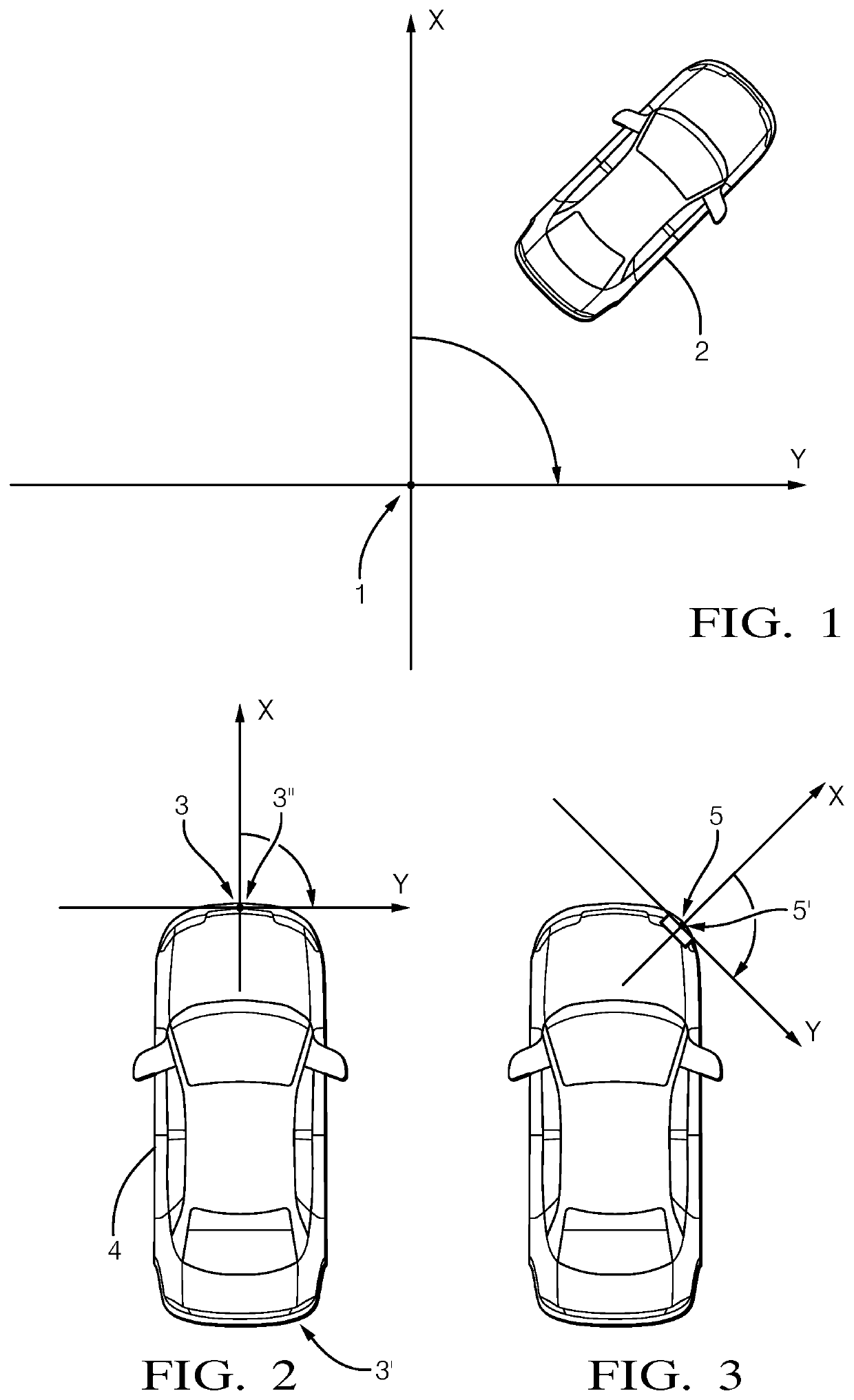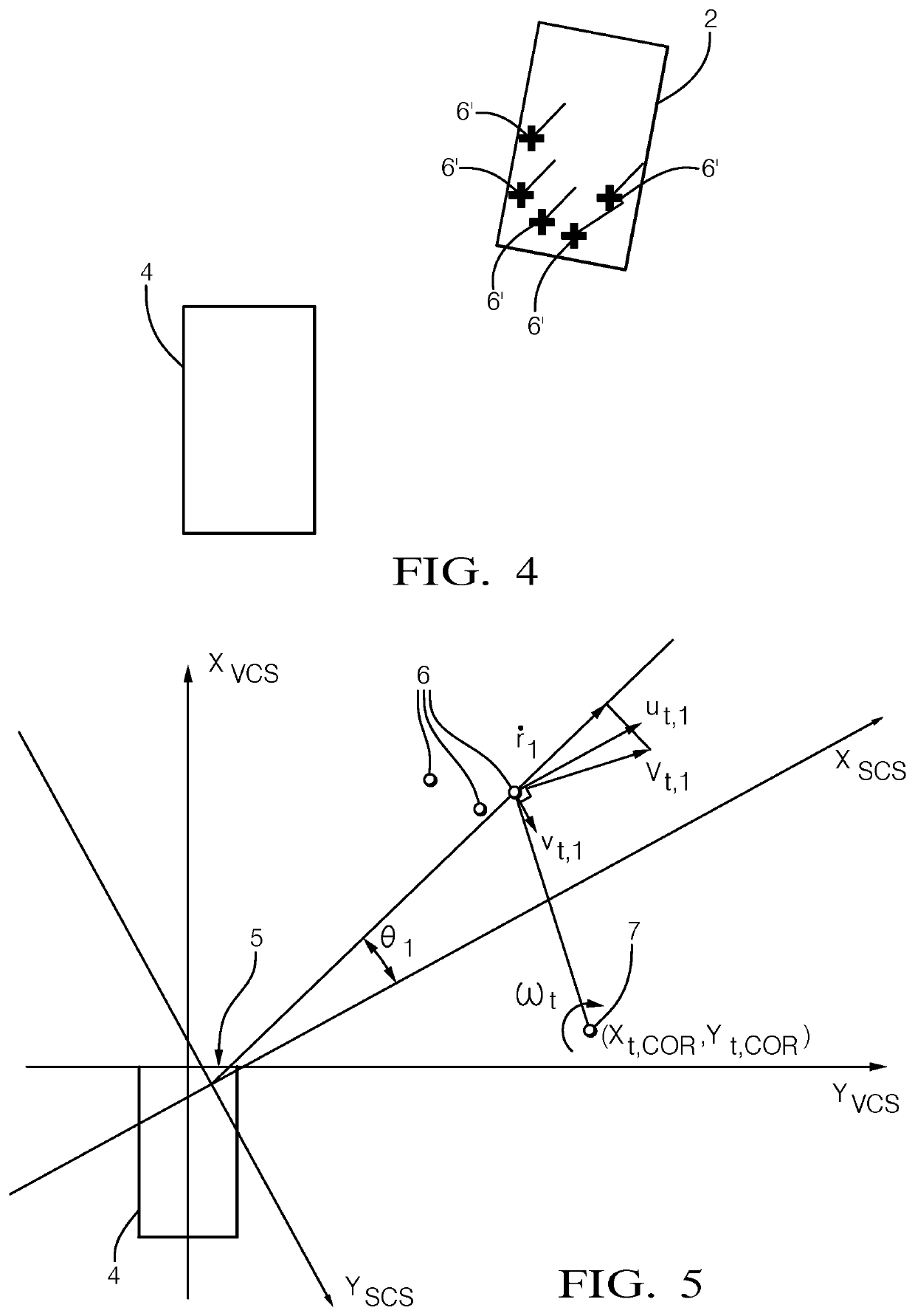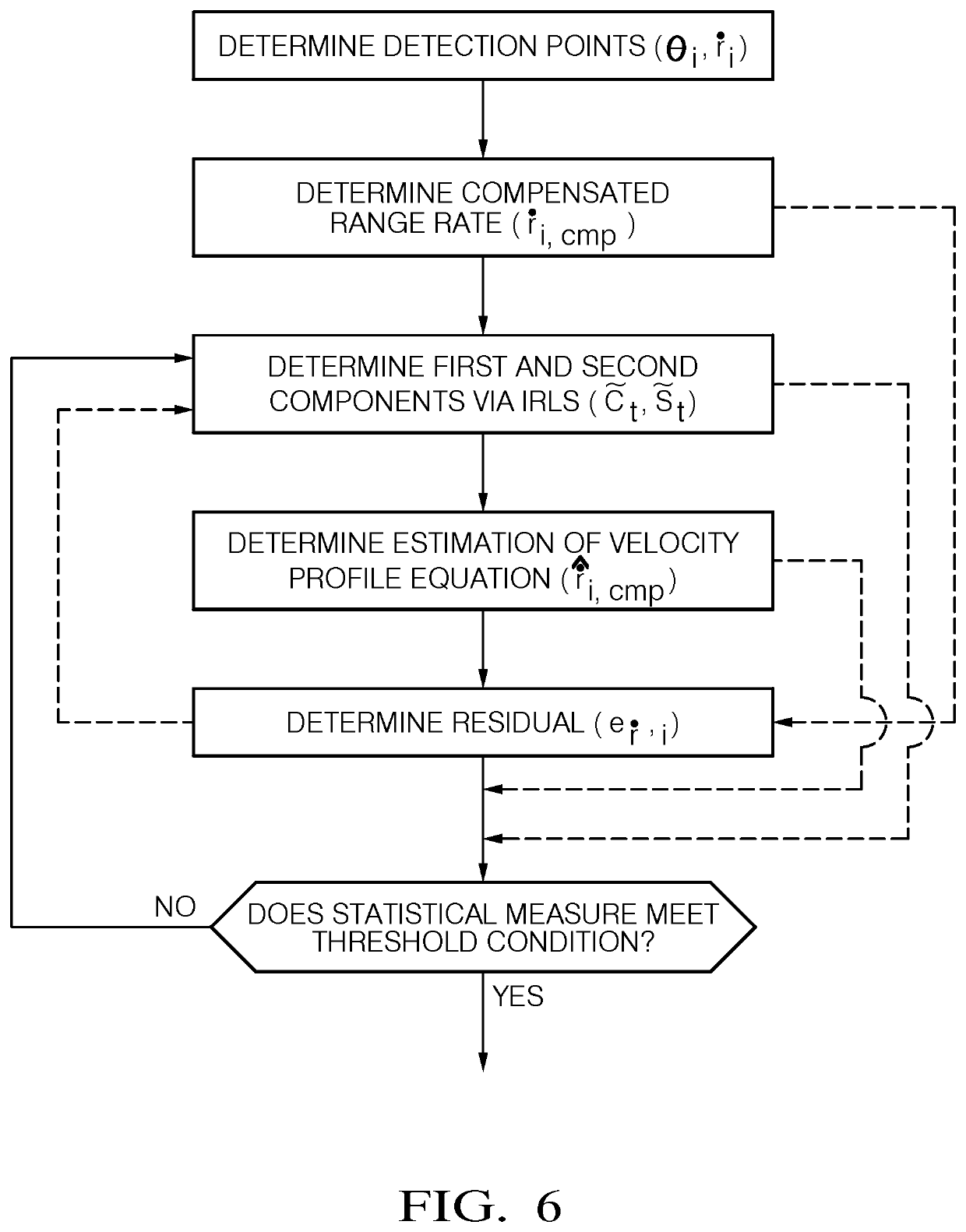Method for robust estimation of the velocity of a target using a host vehicle
a host vehicle and velocity estimation technology, applied in the field of onboard vehicle method of robust estimation of target velocity, can solve the problems of degrading affecting the accuracy of estimation, and not always accurate estimate of target velocity, etc., and achieves the effect of easy interpretation and efficient tuning
- Summary
- Abstract
- Description
- Claims
- Application Information
AI Technical Summary
Benefits of technology
Problems solved by technology
Method used
Image
Examples
Embodiment Construction
[0047]Reference will now be made in detail to embodiments, examples of which are illustrated in the accompanying drawings. In the following detailed description, numerous specific details are set forth in order to provide a thorough understanding of the various described embodiments. However, it will be apparent to one of ordinary skill in the art that the various described embodiments may be practiced without these specific details. In other instances, well-known methods, procedures, components, circuits, and networks have not been described in detail so as not to unnecessarily obscure aspects of the embodiments.
[0048]Generally, a host vehicle 4 (see FIG. 2) is equipped with a radar system 5′ (see FIG. 3) where reflected radar signals from a target 2 (FIG. 1) in the field of view of the radar system 5′ are processed to provide data in order to ascertain the parameters used in the methodology. In order to do this various conditions and requirements are required. The target 2 (rigid ...
PUM
 Login to View More
Login to View More Abstract
Description
Claims
Application Information
 Login to View More
Login to View More - R&D
- Intellectual Property
- Life Sciences
- Materials
- Tech Scout
- Unparalleled Data Quality
- Higher Quality Content
- 60% Fewer Hallucinations
Browse by: Latest US Patents, China's latest patents, Technical Efficacy Thesaurus, Application Domain, Technology Topic, Popular Technical Reports.
© 2025 PatSnap. All rights reserved.Legal|Privacy policy|Modern Slavery Act Transparency Statement|Sitemap|About US| Contact US: help@patsnap.com



